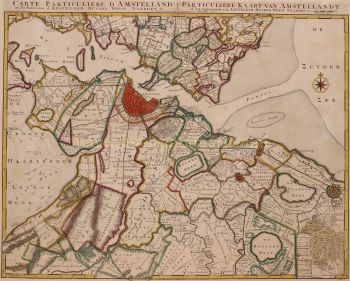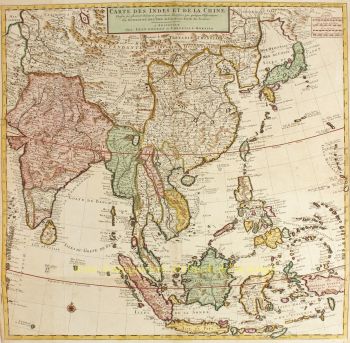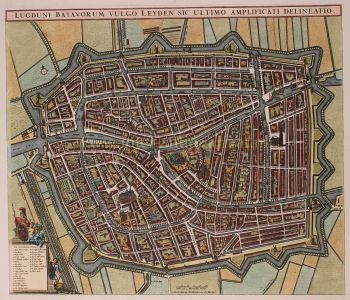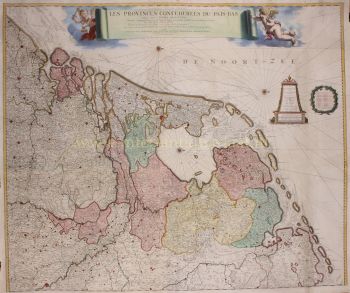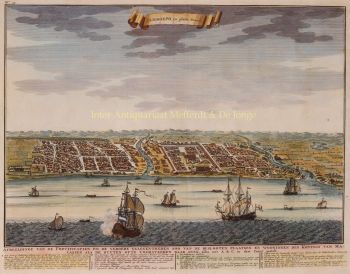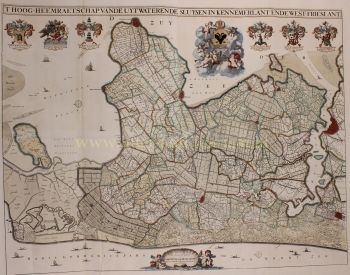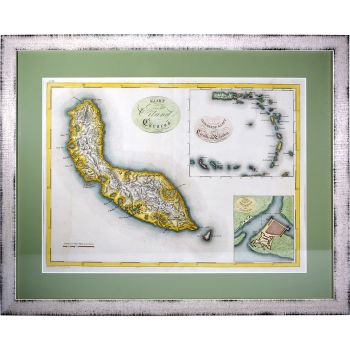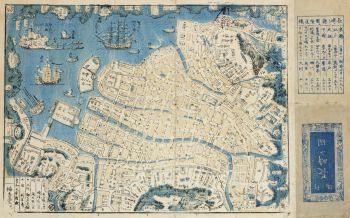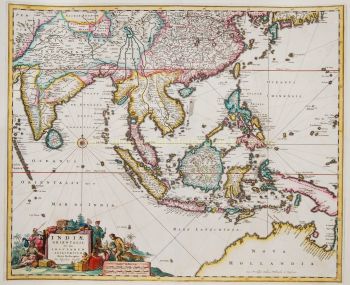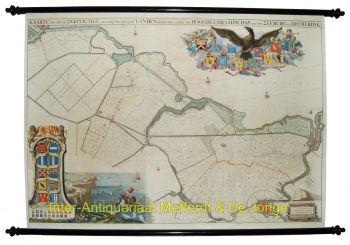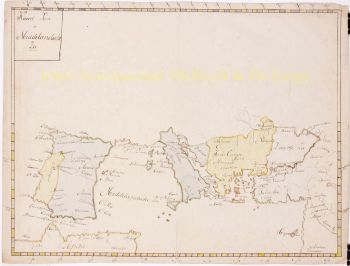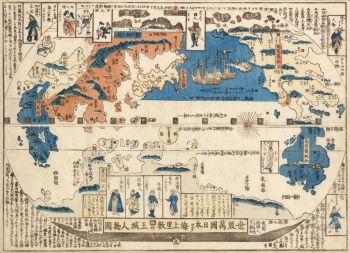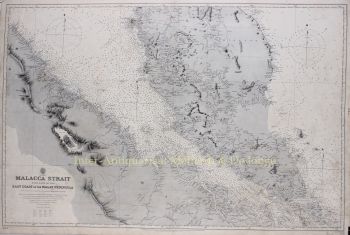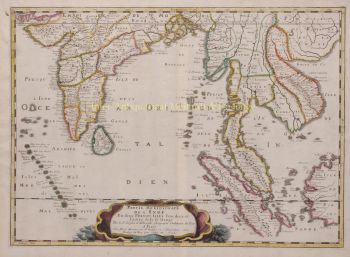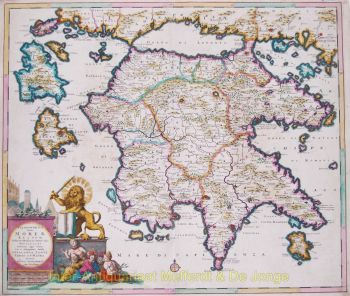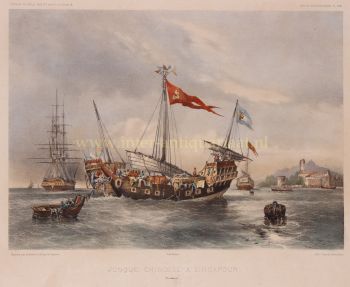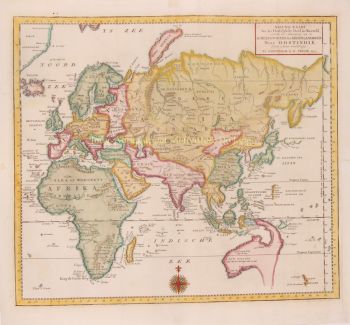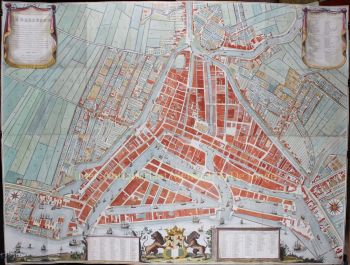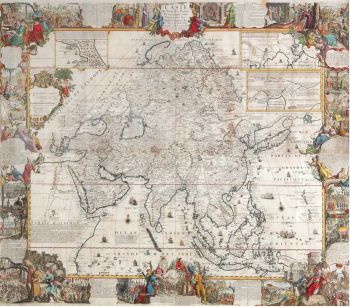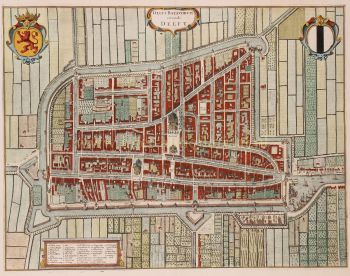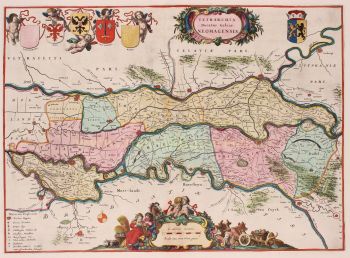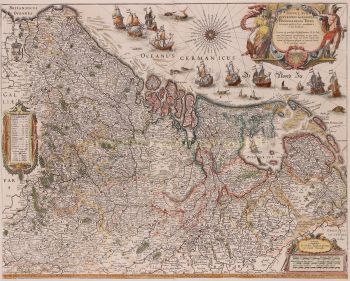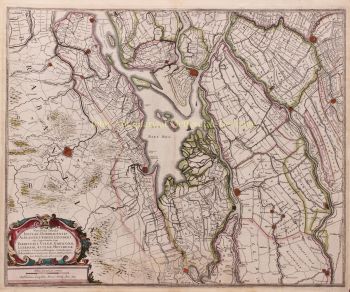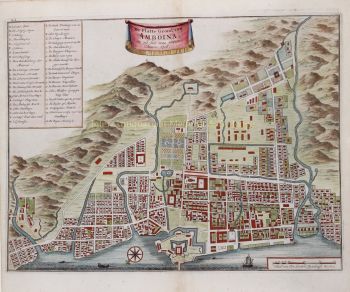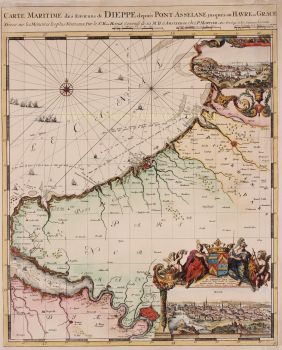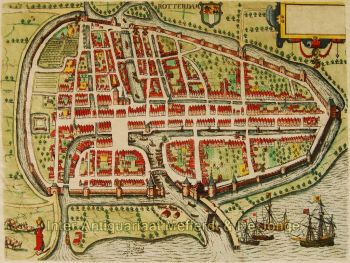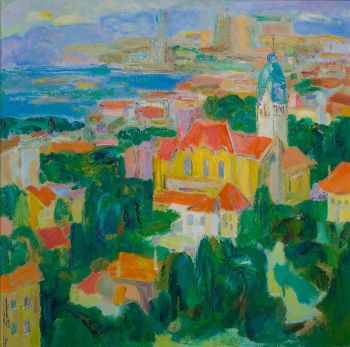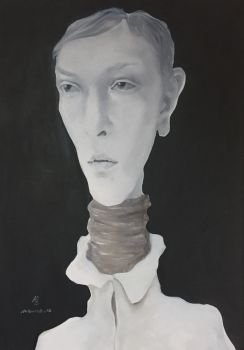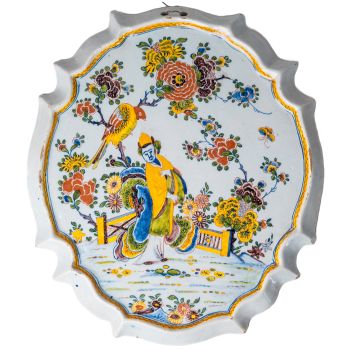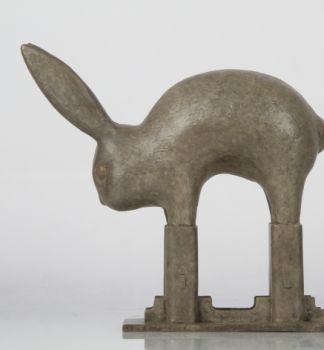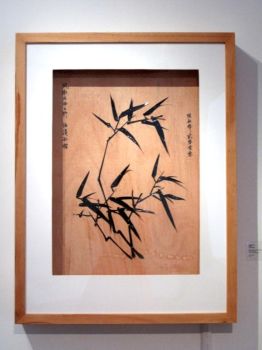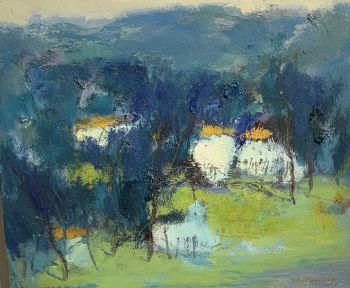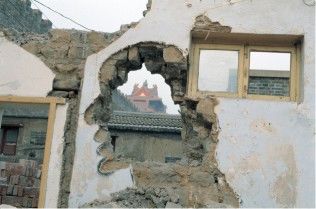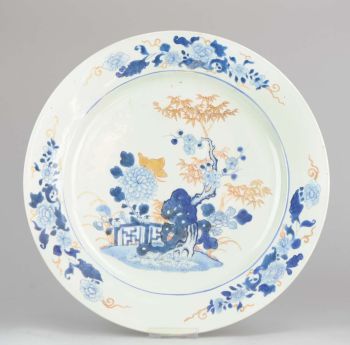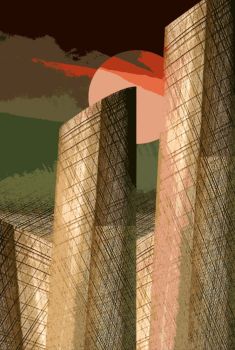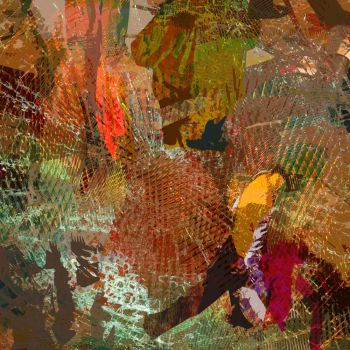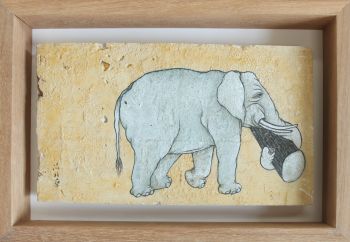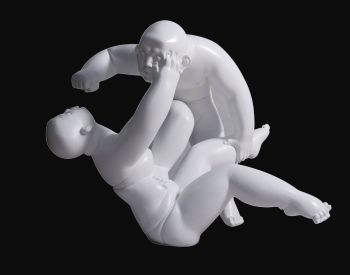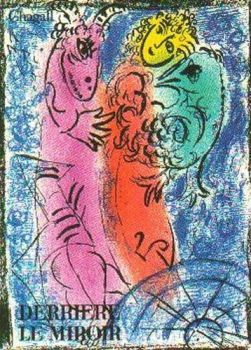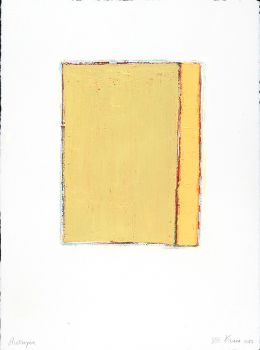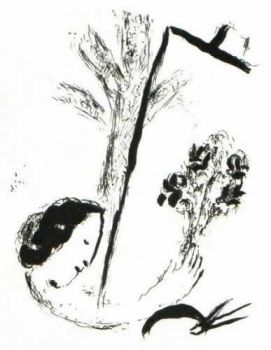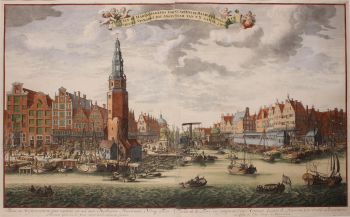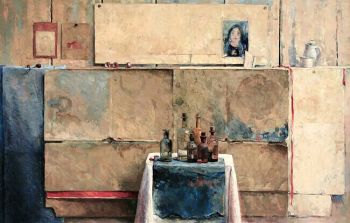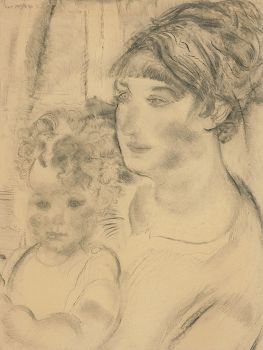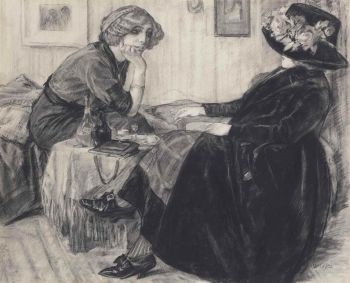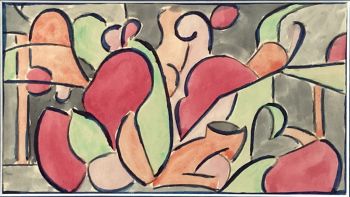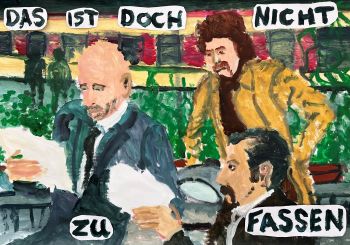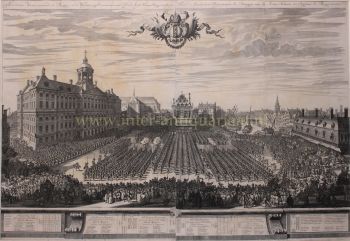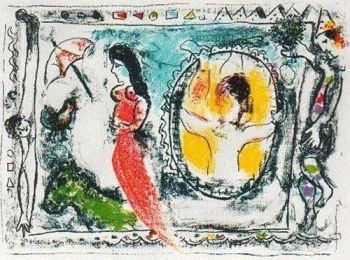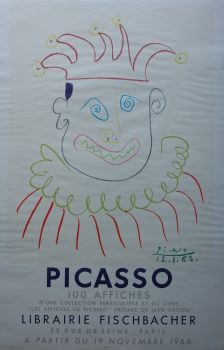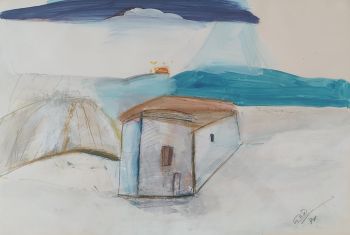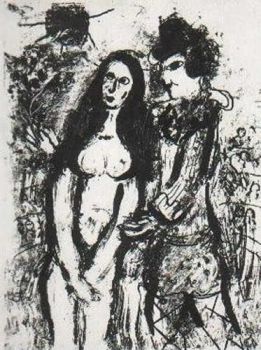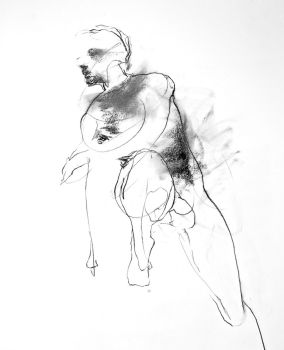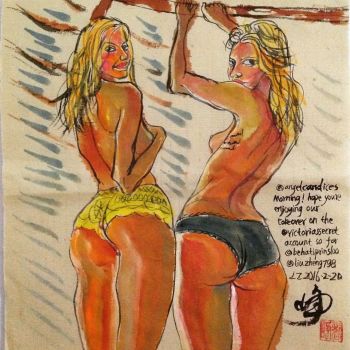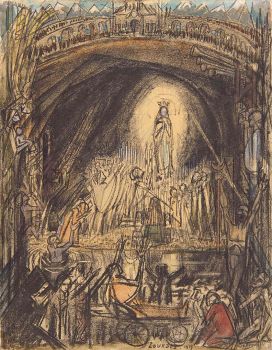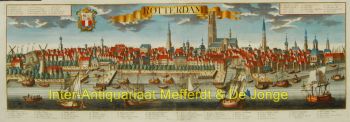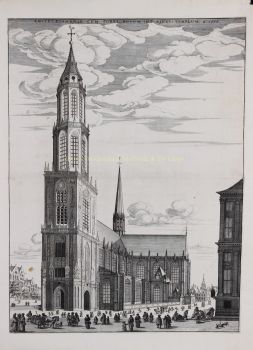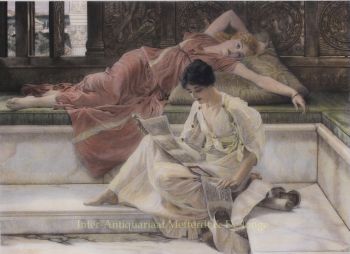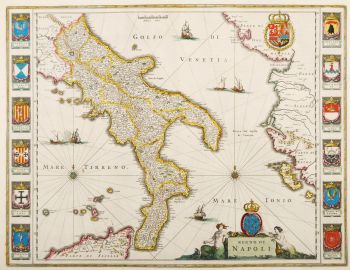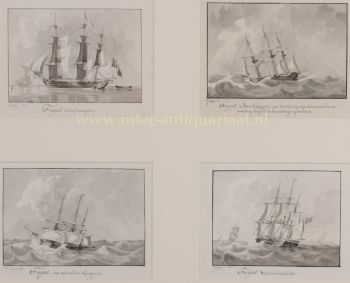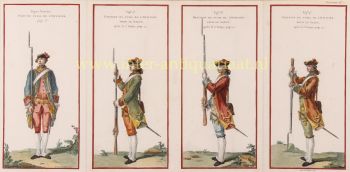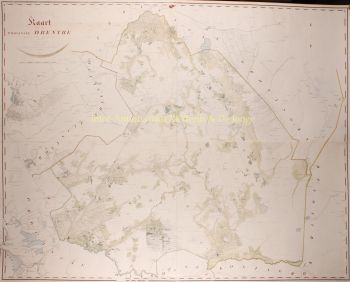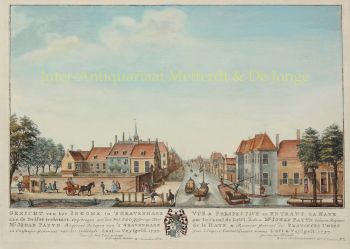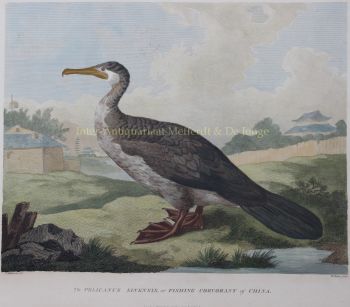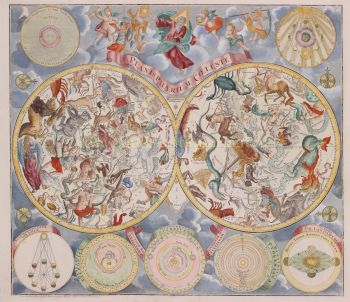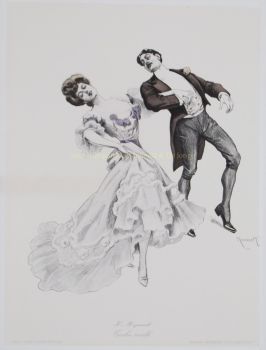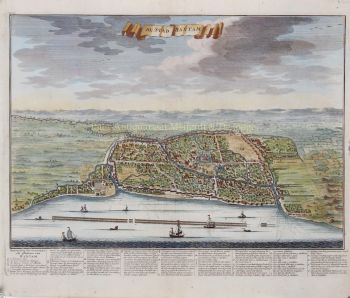China 1695
Covens and Mortier
InchiostroCarta
46 ⨯ 59 cm
€ 1.450
Inter-Antiquariaat Mefferdt & De Jonge
- A proposito di opere d'arte“Imperii Sinarum Nova Descriptio” [The Chinese Empire newly described]. Copper engraving published by Johannes Covens and Pieter Mortier around 1695. Verso: blank. Coloured by a later hand. Size: 46 x 59 cm. This great map of the Chinese Empire was based on the compilation of the Jesuit father Martino Martini who traveled through the region between 1643 and 1650. Martini was the Jesuit Superior in Hangchow, giving him access to indigenous and Jesuit surveys of all the regions of China. It was a period of great internal unrest and his was a perilous journey. He was able to travel inland to the Great Wall and for the first time determined with any scientific accuracy the astronomical position of many cities and topographical features. After establishing a mission in Zhejiang province he returned to Rome via Amsterdam, where he met publisher Joan Blaeu. Blaeu then prepared a group of eight maps covering China in great detail for the “Atlas Sinensis”, the first western atlas of China China is mapped with considerable accuracy for the period: the Great Wall is shown. The map incorporates the discoveries of Joao da Gama and Maarten Gerritsz de Vries. Korea for the first time on a European map is no longer depicted as an island but as a peninsula. The depiction of Japan follows a Portugese map by Christopher Blancus and Ignacio Moreira from 1617, but it is the first map to name and show Hokkaido (here “Ieso”) as an island to the north of Honshu. The map was first issued by Joan Blaeu, and then part of the plates acquired by Covens & Mortier at the end of the 17th century and re-issued with a new privilege by the Covens & Mortier firm. Price: Euro 1.450,-
- A proposito di opere artista
Covens and Mortier (1721 - c. 1862) era una casa editrice di Amsterdam, successore del vasto impero editoriale costruito da Pierre Mortier (1661 - 1711).
Le mappe di Covens e Mortier sono spesso criticate come derivate, ma non è del tutto vero. Pierre Mortier visse a Parigi dal 1681 al 1685. Lì stabilì stretti rapporti con i più grandi cartografi francesi dell'epoca, tra cui De L'Isle e D'Anville.
Il suo modello di business si basava sullo sfruttamento della tecnologia e della raffinatezza della stampa olandese per co-pubblicare cartografia francese all'avanguardia. Alla morte di Mortier nel 1711 la sua azienda fu rilevata dal figlio, Cornelius Mortier (1699 - 1783). Cornelius sposò la sorella di Johannes Covens (1697 - 1774) nel 1721 e, in collaborazione con suo cognato, fondò lo studio Covens and Mortier.
Sotto l'impronta di Covens e Mortier, Cornelius e Johannes continuarono nel modello di Pierre di pubblicare le opere francesi più aggiornate con il permesso. Divennero rapidamente una delle più grandi e prolifiche aziende editoriali olandesi del XVIII secolo.
L'azienda ei suoi successori hanno pubblicato migliaia di mappe in un periodo di 120 anni dal 1721 alla metà del 1800. Durante la loro lunga vita la ditta Covens and Mortier pubblicò come Covens and Mortier (1721 - 1778), J. Covens and Son (1778 - 94) e Mortier, Covens and Son (1794 - c. 1862).
Sei interessato ad acquistare questa opera d'arte?
Artwork details
Related artworks
- 1 - 4 / 7
Artista Sconosciuto
A large wall map of Asia by Nicolas de Fer 1647 - 1720
Prezzo su richiestaZebregs & Röell - Fine Art - Antiques
1 - 4 / 24Artista Sconosciuto
Series of 6 Chinese cups and saucers (Yongzheng period)1722 - 1735
Prezzo su richiestaKuipers Kunst & Antiek
Jan Voerman sr
Still Life with flowers in a Chinese figurine1850 - 1900
Prezzo su richiestaKunsthandel Pygmalion
Artista Sconosciuto
Four famille rose ‘Wu Shuang Pu’ wine cups, Guangxu mark and period (1875-1908)1875 - 1908
Prezzo su richiestaMenken Works of Art
Artista Sconosciuto
A blue and white Romance of the Three Kingdoms charger, Kangxi period (1661-1722)1661 - 1722
Prezzo su richiestaMenken Works of Art
Artista Sconosciuto
A Chinese porcelain blue and white 'Mantou Xin' bowl, Kangxi period (1661-1722)1700 - 1720
Prezzo su richiestaMenken Works of Art
1 - 4 / 24- 1 - 4 / 24
- 1 - 4 / 12



